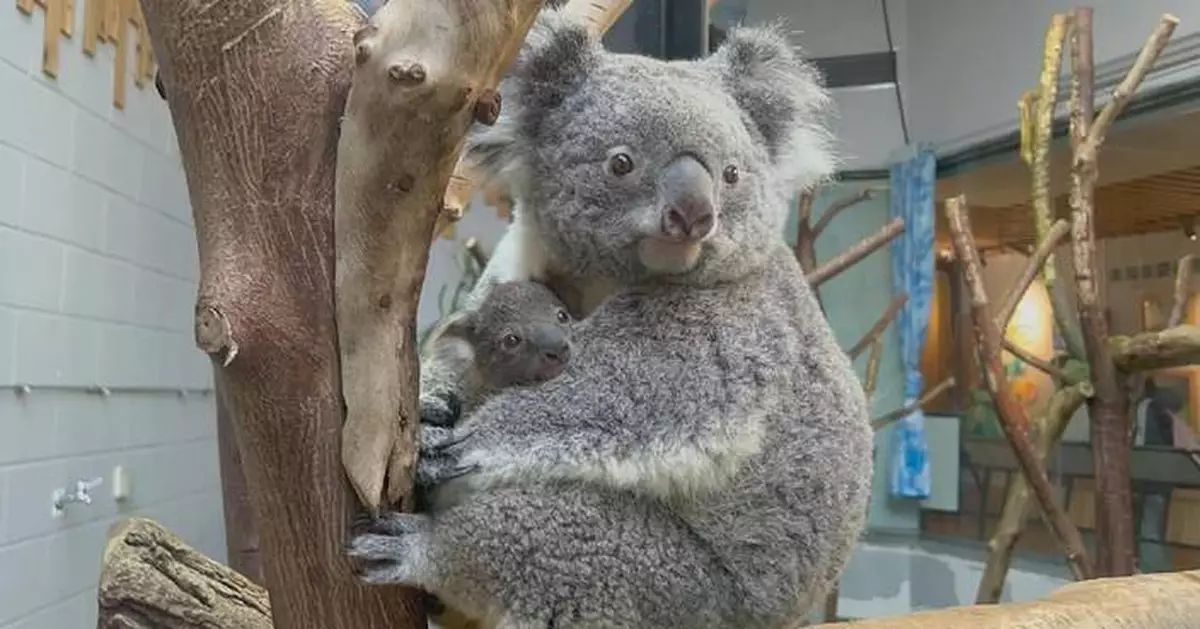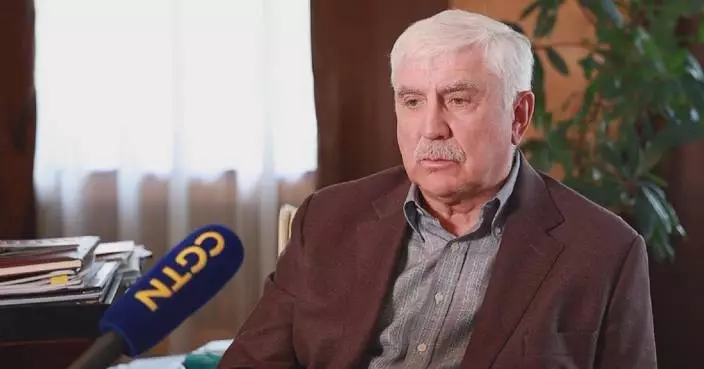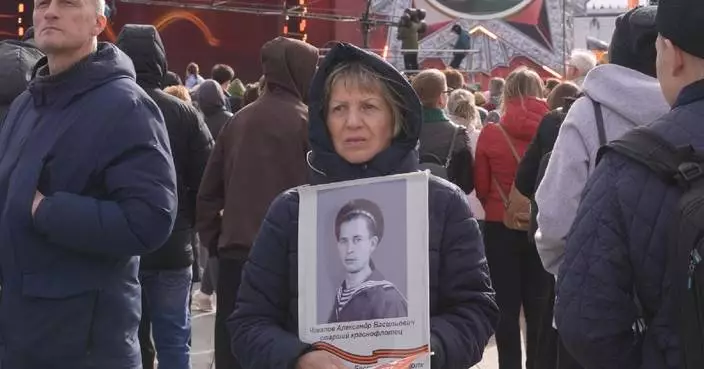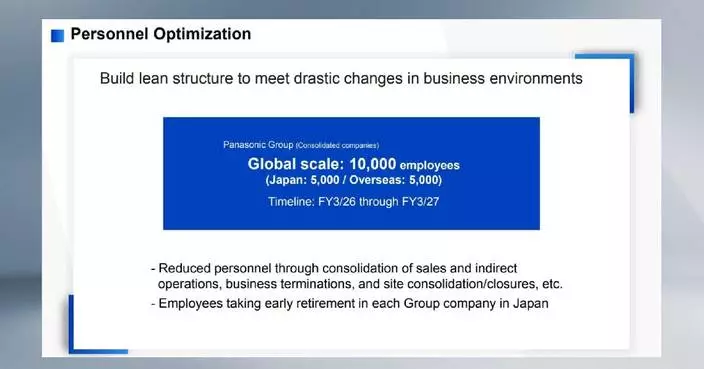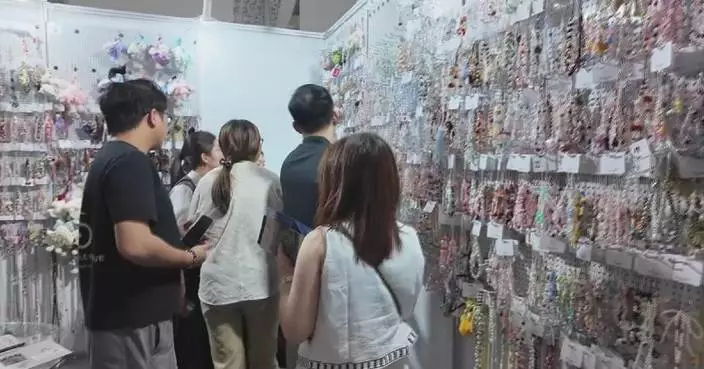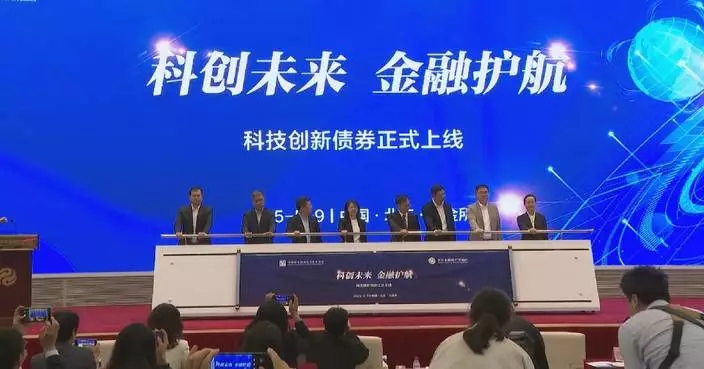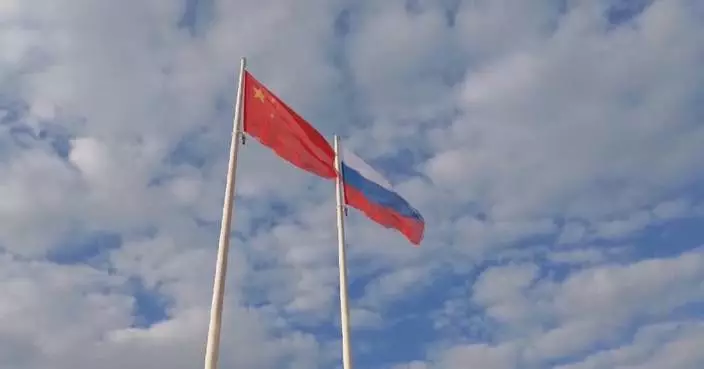On the New Year's Day, the Nanjing Hongshan Forest Zoo in east China's Jiangsu Province shared video of its newest koala joey, showing that the adorable creature has successfully peeked out of its mother's pouch.
Born on May 4, 2024, the sixth baby of the koala pair Wutong and Moli began life as a tiny joey, measuring just about two centimeters at birth.
Instinctively, the newborn would crawl into its mother's pouch, where it would spend around six months developing in a secure, nurturing environment.
On November 11, the joey -- affectionately nicknamed "Princess VI" by the zoo -- made its first full exit from the pouch to explore the outside world.
Now, nestled in its mother's arms, the joey has begun nibbling on eucalyptus leaves to strengthen its teeth, though its primary nutrition still comes from its mother's milk, said a zoo keeper.
The zoo is now inviting members of the public to help name this adorable addition to the zoo's animal family.
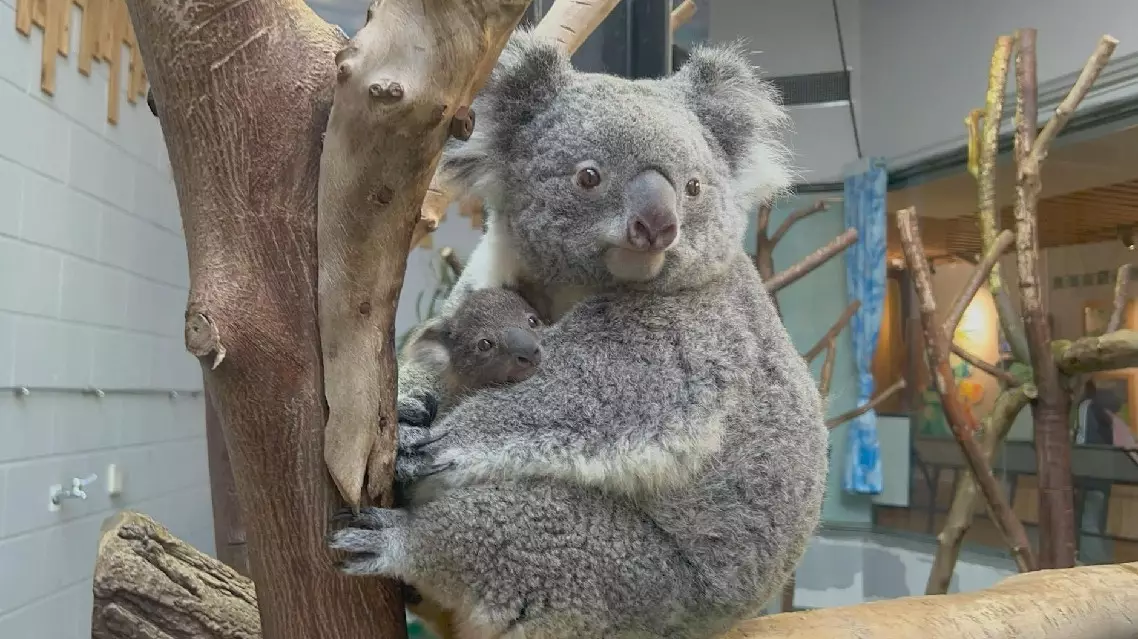
Zoo in east China's Nanjing shares video of its newest koala joey
China's 15th National Games, which is set to begin on Nov 9 in Guangzhou City, south China' Guangdong Province, will be ended with an exciting closing ceremony on Nov 21 in Shenzhen to wrap up the event co-hosted by Guangdong, Hong Kong (Special Administrative Region (SAR), and Macao SAR.
This year, organizers are breaking from tradition with a closing ceremony that will unfold outside of a sports venue, themed "Stars and the Sea," promising a panoramic citywide celebration.
Attendees can expect six artistic performances that fuse Shenzhen's technological advancements with the rich culture, cuisine, and architecture of the Greater Bay Area.
The backdrop of a starry sky and ocean will transform the traditional athlete procession, featuring performances from dance troupes and universities, alongside humanoid robots and drones that will showcase the latest in artificial intelligence and virtual reality. This spectacle aims to marry high-tech innovation with traditional art, creating an unforgettable audiovisual experience.
"The torch extinguishing segment of the closing ceremony will incorporate cutting-edge technology while moving beyond the conventional human-centered performance model. You will witness many performances actually taking place in the water, in the sea, experience the evolution of Shenzhen over the past 45 years, and see the integration of the Greater Bay Area. It will reflect the vigorous development of China today as we continue to strive boldly towards tomorrow," said Shen Chen, chief director of closing ceremony of 15th National Games.
The National Games, held every four years, is the nation's highest level and largest national multi-sports event. The last edition in 2021 saw over 12,000 athletes compete in northwest China's Shaanxi Province.
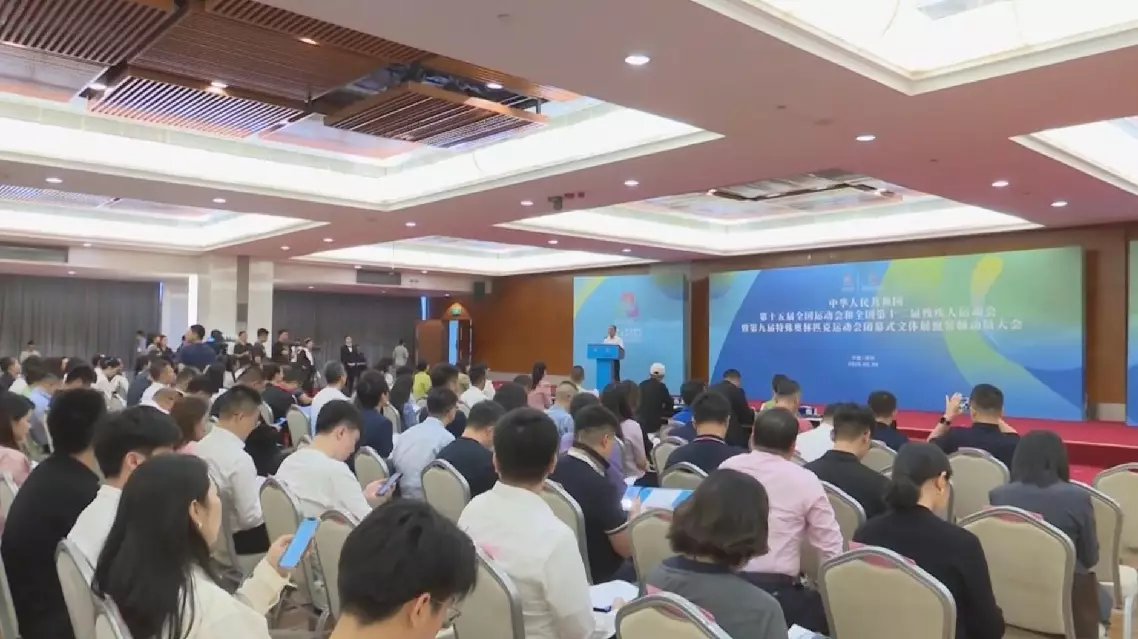
Closing ceremony of 15th National Games to feature unique citywide celebration



